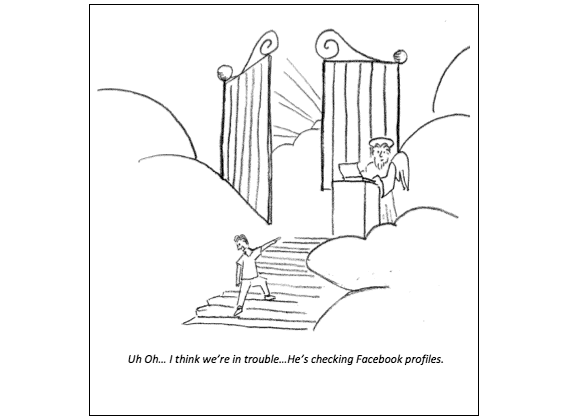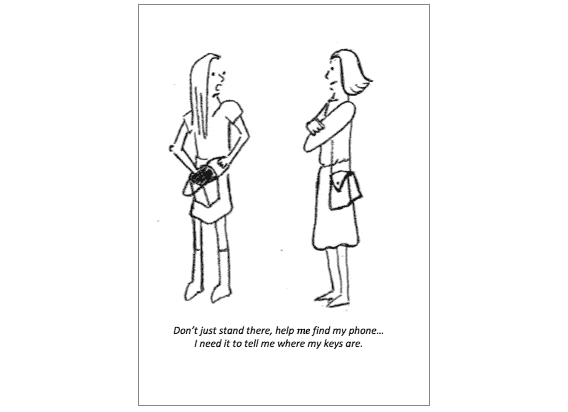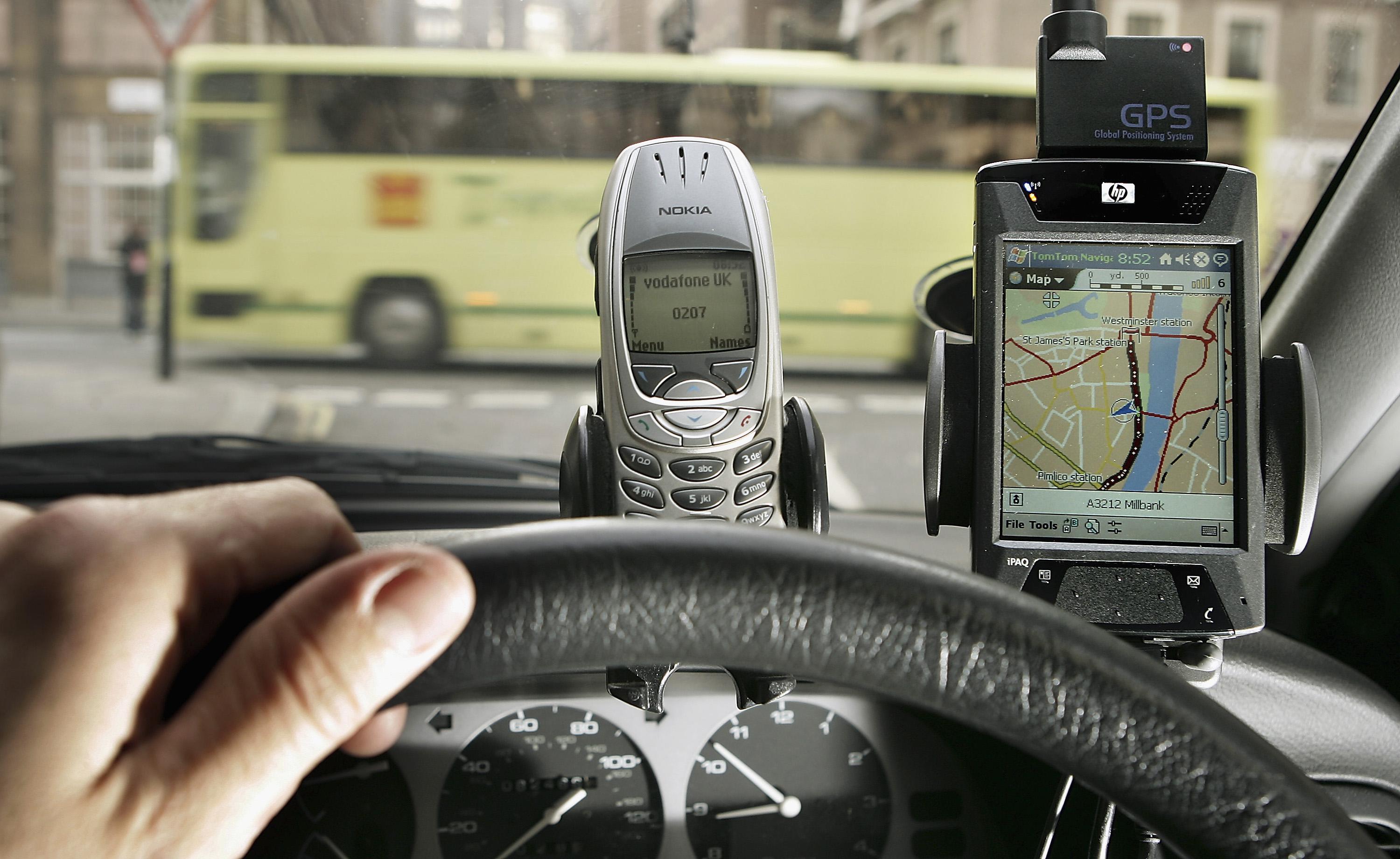According to a recent study, memory’s sharpness deteriorates earlier than we presumed: Forty-five is the new mental 60. Fortunately, there are practical ways to enhance mental agility: exercise, healthy diet, sufficient rest, learning new things. Increasingly, technology will play an important role in preserving cognitive function. From the sanctioned war on Alzheimer’s to widespread off-label use of Ritalin, Adderall, and Modafinil, one thing is clear: We’re intent on getting our memory enhancement on.
Ubiquitous information and communication technology is a major player in the memory enhancement game. I’m not alluding to products that target impairments, like the iPhone app for combating dementia. Rather, I mean commonplace software that people use to make recall less taxing, more extensive, or easier to visualize.
For instance, Wikipedia’s anti-SOPA protest made 162 million users, accustomed to turning to the site for those idle questions that crop up every day, feel absent-minded. Nobody messed with my hippocampus or your prefrontal cortex. Rather, Wikipedia’s actions were jarring because Internet use affects transactive memory, which is “the capacity to remember who knows what.” If we know information is available online, we’re inclined to remember where it can be found, rather than struggle to retain the facts. This evolutionary tendency to off-load taxing aspects of cognition into the environment—natural or built—extends beyond using devices to recall information we’re already familiar with.
This is called “extended cognition,” and it plays a crucial role in a controversial view called the “extended mind” thesis. Advocates argue that data-management technologies, from low-tech pads to high-tech computers, don’t always function as mere memory-prompting tools. Sometimes, they deserve to be understood as parts of our mind.

Illustration by John Mix.
While controversy doesn’t surround the science of transactive memory, its implications are hotly debated. Philosopher of science Ronald Giere rejects the extended mind view to avoid conceptual and ethical problems. Others express concern about our ability to use technology responsibly. Nicholas Carr, author of “Is Google Making Us Stupid?”, calls research into technology’s effects on transactive memory “disquieting.” In All Things Shining, renowned artificial intelligence critic Hubert Dreyfus and Harvard University’s Sean Kelly depict reliance on GPS navigation as so acidic to skill and meaning that it “flattens out human life.” Historian Edward Tenner suggests “access to electronic memory tends to give us an exaggerated view of our knowledge and skills.” Such ongoing debate signals an important cultural shift, one we’re all struggling to come to terms with.
Until recently, memory problems indicated a deficiency in personal character, a shortage of “ethics or humanity.” This outlook was a sign of the times: Informational scarcity fueled an ethos of individualism. Today, advances in technology and technique enable vast quantities of networked information to be stored and retrieved cheaply, simply, and reliably. Information abundance fuels its own ethos where interdependency and mediation take center stage. Go to a party and brag about your ability to recall contact information. Nobody will toast your commitment to swimming against the tide of memory depletion. Instead, folks will tell you and your antiquated sensibilities to get a life and a smartphone.
Transhumanists like George Dvorsky are holding out for perfect memories, or total recall: “Count me in for when perfect memory finally becomes medically possible,” he has written. Maybe I’m old-fashioned, but this sounds terrible. The ability to forget allows us to forgive (“time heals all wounds”) as the pain of memories fades. It also allows us to make difficult, but important life-altering decisions. Ethicist Justin Weinberg suggests perfect recall of the pain of childbirth and the tortures of new-parent sleep deprivation could impact reproduction. More than a century ago, Nietzsche speculated that active forgetting is the key to living a life unencumbered by resentment. Today, scientists concur. Memory is seen as a creative “means for endlessly rewriting the self.”
Luckily for me (but not Dvorsky), perfect recollection isn’t close to being feasible. Drugs and surgery aren’t there yet, nor are digital means. Michigan State’s Lawrence Busch argues that data storage technology is more advanced than data-cataloging tools:
Large-scale data sets commonly stored on computers present many of the same problems as memory-enhancing technologies. First, data often are drawn from highly biased samples containing numerous errors; a few outliers may skew interpretation of the entire data set. Second, data-mining programs often don’t live up to the hype. They fail to detect subtle differences and identify the proper features of salience.
Perhaps, though, incremental advances in “key phrase search capabilities” are all it takes to dramatically enhance our recall powers.
Is the quest for profound memory enhancement an unalloyed blessing or Faustian bargain? Viktor Mayer-Schönberger, author of Delete: The Virtue of Forgetting in the Digital Age, leans toward the latter:
With Facebook’s Timeline feature, our past is seemingly with us all the time. It will make forgetting, the crucially important human quality that is already threatened by the ubiquity of comprehensive digital memory, harder still. This will empower the big data accumulators and weaken the individual. It will hamper our opportunities for a fresh start, and a second chance. And it will reduce our ability to act in the present without remaining encumbered by a never-fading past. In short, it will inhibit us to abstract, evolve, grow and forgive, and to see the forest rather than just myriads of trees—thus [undoing] a core element of being human.
My colleague Elizabeth Lawley, professor of interactive games and media at RIT, also has concerns about our evolving relation to what Mayer-Schönberger calls “digital memory.” Consider Timehop, a lifelogging app that performs “memory engineering.” Interfacing with check-in and geo-tagging programs like Foursquare, the app sends users reminders of what they accomplished a year ago. These blasts from the past encourage us to consider social media technology tools for simultaneously journaling and broadcasting. While this outlook can be beneficial, Lawley raises an interesting question: If we go through life aware we’re leaving behind a detailed digital archive that future generations can read, might we be inclined to behave inauthentically so that our digital breadcrumbs point back to idealized versions of ourselves? Along these same lines, Princeton psychology professor Daniel Kahneman likes to draw upon a distinction between the “experiencing self” and the “remembering self.” He proposes a provocative thought experiment: “You know that at the end of the vacation all of your pictures will be destroyed, and you’ll get an amnesic drug so that you won’t remember anything. Now, would you choose the same vacation?” If you wouldn’t, it might be because you value memories of an experience more than lived experience.

Illustration by John Mix.
One more concern should be added to the mix. Improving memory-prompt technology does more than enhance our recall abilities. It primes us to delegate ever more behaviors to automated processes. We’ve already moved past Facebook reminders of friends’ birthdays to fully automated birthday greetings. Similarly, Hallmark allows us to create greeting cards for the entire year in one sitting. It is hard not to see these options as altering, perhaps even diminishing, the meaning of rituals, especially when so many of us have already developed a Pavlovian response to prompts.
Although the memory transformation train has left the station, we don’t know where it will it stop. Critics have long warned us about the ability to erase painful memories. If we make bad decisions, nobody can blame the result on poorly understood “memory dampening” ethics. Memory supplements, however, may be harder to think about. Like a child who eats too much birthday cake, we find it difficult to see how getting more can be more than we bargained for.
This article arises from Future Tense, a collaboration among Arizona State University, the New America Foundation, and Slate. Future Tense explores the ways emerging technologies affect society, policy, and culture. To read more, visit the Future Tense blog and the Future Tense home page. You can also follow us on Twitter.
